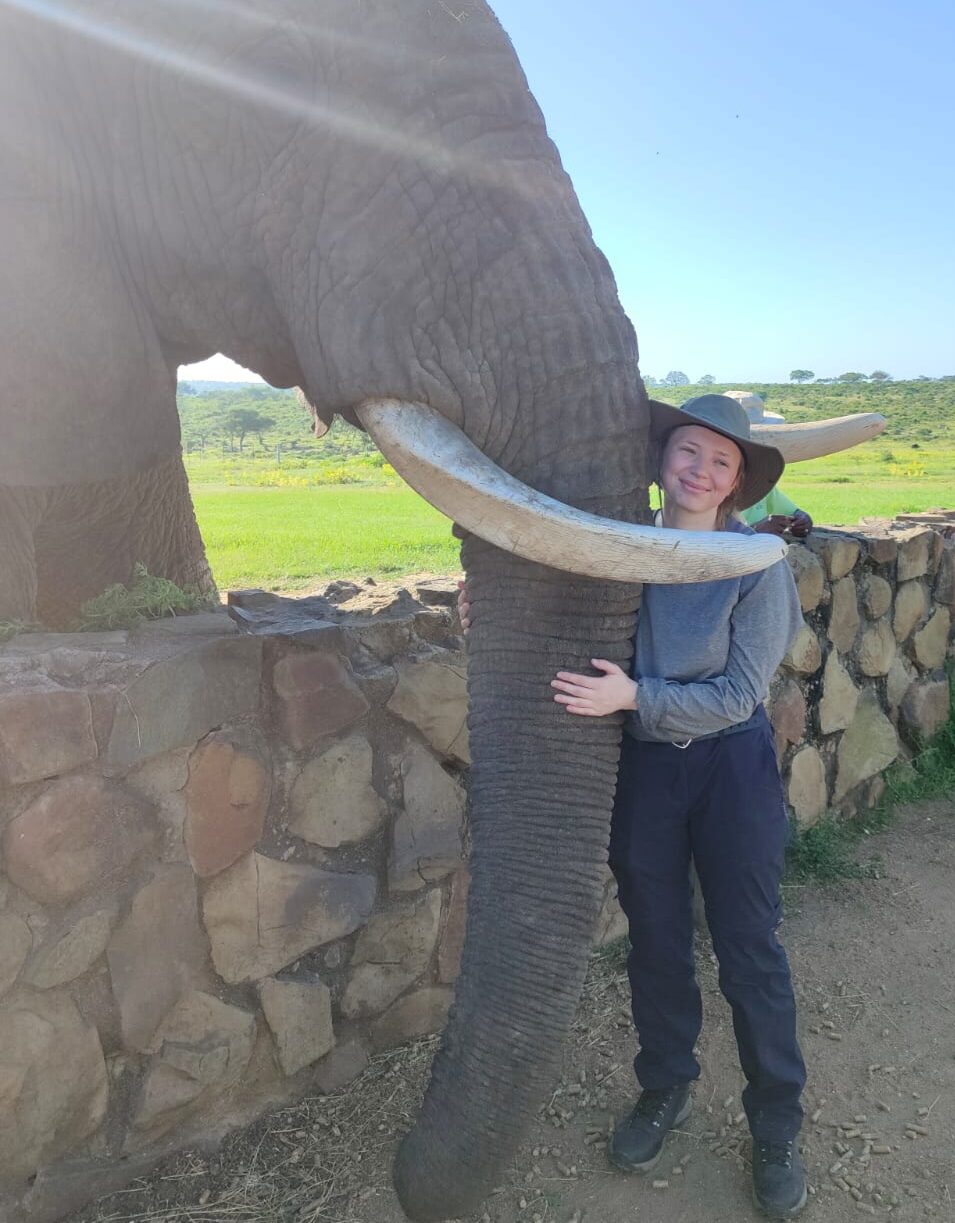Sophie Kovacs, 27, from Romiley in Stockport chose to study at University Centre Reaseheath (UCR) primarily for its unique curriculum and practical experiences offered through the on-site zoo at the Nantwich-based campus. “I knew that having a zoo on campus would help with practical experience,” she recalls, “and I chose to start with a foundation degree before topping it up to a full BSc.”
Sophie’s dissertation, which focused on exploring British tourists’ wildlife value orientations, was inspired by her travels to South Africa and Thailand.
“After visiting places where tourists participate in animal tourism, where they can have close encounters with a range of exotic animals such as tigers, elephants, and monkeys, I became aware of the concerning lack of regulation in these experiences,” she recalls.
“Many tourists are unaware of the bad welfare the animals may face, or they may choose to ignore it due to the country’s cultural beliefs and the fact they are on holiday.” Sophie theorised that while many people care for animals, they still participate in these experiences, often without understanding the implications.
To gather her data, Sophie designed a questionnaire based on Fulton and Manfredo’s Wildlife Value Orientation (WVO) framework and took to social media to distribute her questions.
“My questionnaire asked participants how much they agree with wildlife beliefs, such as ‘The needs of humans should take priority over fish and wild animal populations,’” she explains.
While her study did not directly address welfare concerns, she found that people who care for animals are still inclined to participate in close encounters, revealing a disconnect between their ethical beliefs and tourism activities. “I found that while tourists may hold caring beliefs and strong social affiliations with wildlife, the way they express these values through tourism activities may not consistently align with their ethical principles,” she said.
Sophie faced challenges throughout her dissertation journey, but found support in her dissertation supervisor, Becx Whitefield. “Becx always helped with any questions I had and made sure I was on the correct lines,” she says.
Despite the challenges, Sophie believes she developed essential skills during her time at UCR. “I learned how to collect data ethically, read scientific articles properly, and infer and compare their data to my own,” she says. “I also learned how to use R Studio, which will be important if I decide to pursue a master’s or further research.” She feels that UCR has prepared her well for her professional journey. “UCR prepared me to write research proposals, stick to deadlines, and collaborate with other students and lecturers.”
Sophie’s dissertation was highly regarded, earning her an impressive score of 81%.
Ellie Rose, Programme Leader for Animal Sciences, said: “Sophie produced a very well-written dissertation, which demonstrated a thorough grasp of statistical analysis, together with an astute understanding of the topic. She presented her results clearly and integrated a wide range of quality references.”

Reflecting on her time at UCR, Sophie recalls memorable experiences that shaped her academic journey. “I really liked the practical elements of the course, such as training the marmosets on the onsite zoo and making enrichment for animals using saws and drills,” she reminisces.
My favourite part of university was visiting South Africa with my classmates, going on safaris, and visiting the local reptile centre, elephant refuge, and animal sanctuary. I also really liked learning about the different cultures of South Africa and enjoying their delicious food.”
As she looks toward the future, Sophie has exciting plans post-graduation. “After my final year, I am going to a ski season in the French Alps,” she reveals, noting her research proposal from her second year, which examined the impact of tourism on alpine animals. “I hope to apply for a master’s next year and get a scholarship. I want to continue studying animals and tourism and contribute to wildlife conservation in tourist destinations.”
For students about to embark on their own dissertation projects, Sophie has valuable advice. “Try to stay organised, break things down into manageable chunks, and take one day at a time,” she suggests. “Speak to your supervisor about your dissertation and about your feelings on it. When I was overwhelmed, my supervisor really helped me. Remember to take breaks and enjoy yourself while doing it. And pick a topic that you really like!”
Kirsty will graduate from University Centre Reaseheath during a ceremony at Chester Cathedral on November 6th.
Visit our blog listings page or view our latest blogs below.
Animal Management